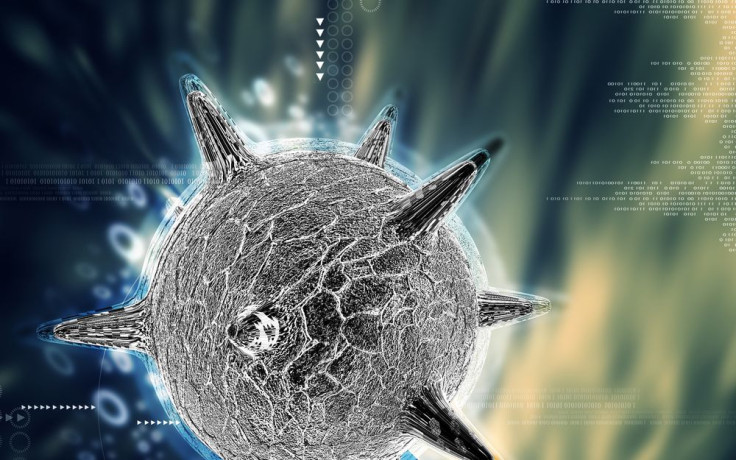Genetically Modified Herpes Kills Skin Cancer, Marking First Time A Virus-Based Treatment Has Succeeded In Phase 3 Trial

A drug containing a genetically modified strain of the herpes virus has been found to eliminate tumor growth in patients with the most deadly form of skin cancer, melanoma. What's more, researchers found this form of treatment, "virotherapy," even sent some patients into complete remission. The recent study on this T-VEC strain marks the first time that a virus has been successful in destroying cancer cells during a final phase 3 clinical trial and may open doors for a completely new class of drugs.
In the study, now published in the Journal of Clinical Oncology, a team of researchers at the Institute of Cancer Research gave the T-VEC drug to more than 400 patients with aggressive malignant melanoma. All the patients involved in the study had inoperable, relapsed, or metastatic melanoma with no conventional treatment options available to them, The Guardian reported.
“They had disease that ranged from dozens to hundreds of deposits of melanoma on a limb all the way to patients where cancer had spread to the lungs and liver,” Kevin Harrington, lead researcher on the project explained, as reported by The Guardian.
Of this group, one in four responded to the treatment, 16 percent were still in remission after six months, and 10 percent were considered to have gone into “complete” remission with no detectable cancer remaining in their bodies. In five years, if this group remains cancer-free, they will be considered “cured.”
The results are extremely promising, and Amgen, the company who produces the drug, has already submitted it for approval for both the U.S. Food and Drug Administration and the European Medicines Agency. If approved, it could become available for use as early as next year.
Virotherapy involves genetic modification to reprogram viruses to attack cancer cells instead of healthy cells. The modified virus also stimulates an immune response from the body, which helps to further eliminate the invading cancer from the body. The concept of using viruses to treat cancer has been around since the early 1950s, when doctors began to notice that cancer patients who had also contracted viral infections or who had been recently vaccinated were showing slight signs of improvement.
Unfortunately, past studies on virotherapy usually involved patients contracting the very virus which was meant to save their lives. However, today thanks to modern technology, scientists can genetically modify viruses so that they no longer pose a threat to healthy tissue.
In recent projects involving virotherapy, the measles virus has been used to treat a form of blood cancer and the polio virus has been used to treat brain cancer. Even the deadly HIV has been explored for its potential use as a cancer treatment. However, this specific re-engineering of the herpes virus marks the first positive phase 3 trial results for a cancer virotherapy.
Normally, the herpes virus infects healthy cells and may cause outbreaks of sores on the mouth and genitals, but the genetically modified T-VEC virus has been programmed to infect cancer cells rather than healthy cells. Once inside the cancer cells, herpes multiplies until the cells burst open. This causes the virus to spill into the surrounding area, thus triggering an immune reaction.
For reasons still unclear, the modified virus treatment is also able to attack secondary tumors scattered throughout the body: “It’s like an unmasking of the cancer,” Harrington said. “The patient’s immune system wakes up and attacks the cancer cells wherever they are in the body.”
The study may signal a shift from the traditional chemotherapy-based cancer treatment, which can kill both cancerous and healthy cells toward a more viral-based technique capable of precisely targeting the cancer while leaving the rest of the body intact.
“We may normally think of viruses as the enemies of mankind, but it’s their very ability to specifically infect and kill human cells that can make them such promising cancer treatments,” explained Paul Workman, chief executive of the Institute of Cancer Research.
Source: Andtbacka RHI, Kaufman HL, Collochio F, et al. Talimogene Laherparepvec Improves Durable Response Rate in Patients With Advanced Melanoma. Journal of Clinical Oncology. 2015



























